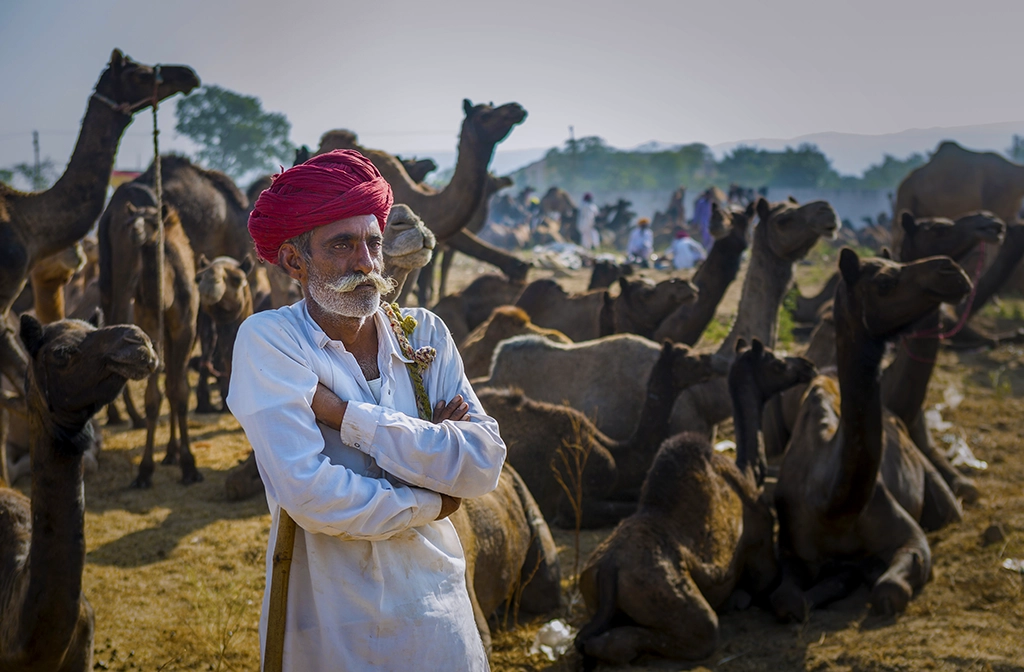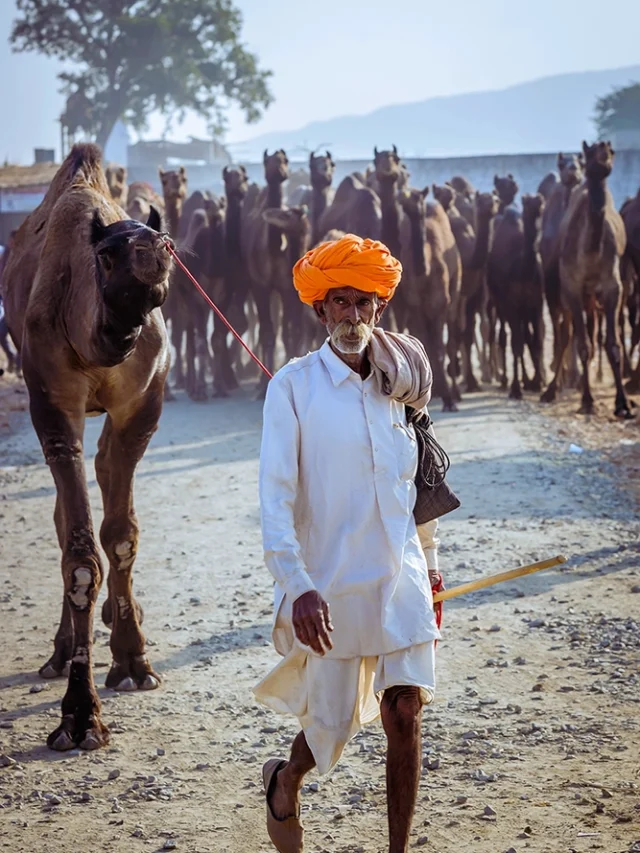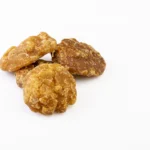Welcome to the vibrant tapestry of Rajasthan, where centuries of history and traditions come to life in a kaleidoscope of colors, sounds, and experiences. As a photographer with a passion for travel, food, and culture, I’ve embarked on a journey that has led me to one of the most enchanting events in India—the Pushkar Camel Fair. In this article, I invite you to join me in exploring this cultural extravaganza, offering a unique perspective that challenges conventional thinking and encourages you to embrace a new outlook on Rajasthan’s rich heritage.
Table of Contents
The Pushkar Camel Fair: Where History and Tradition Converge
The Pushkar Camel Fair, often hailed as a mere livestock trading event, is, in reality, a visual odyssey that immerses you in the vibrant culture, traditions, and experiences of Rajasthan. This fair has a history that dates back to time immemorial, with its origins rooted in the religious significance of the Pushkar Lake. It’s believed that Lord Brahma, the creator in Hindu mythology, dropped a lotus here, creating the lake and making Pushkar a sacred town.
Historically, the fair served as a platform for traders and herders from far and wide to converge, trade, and showcase their livestock, including the iconic camels. Over time, it evolved into more than just a trading event; it transformed into a celebration of life. Today, it offers a glimpse into the rich tapestry of India’s cultural heritage, where the past and the present coexist harmoniously.
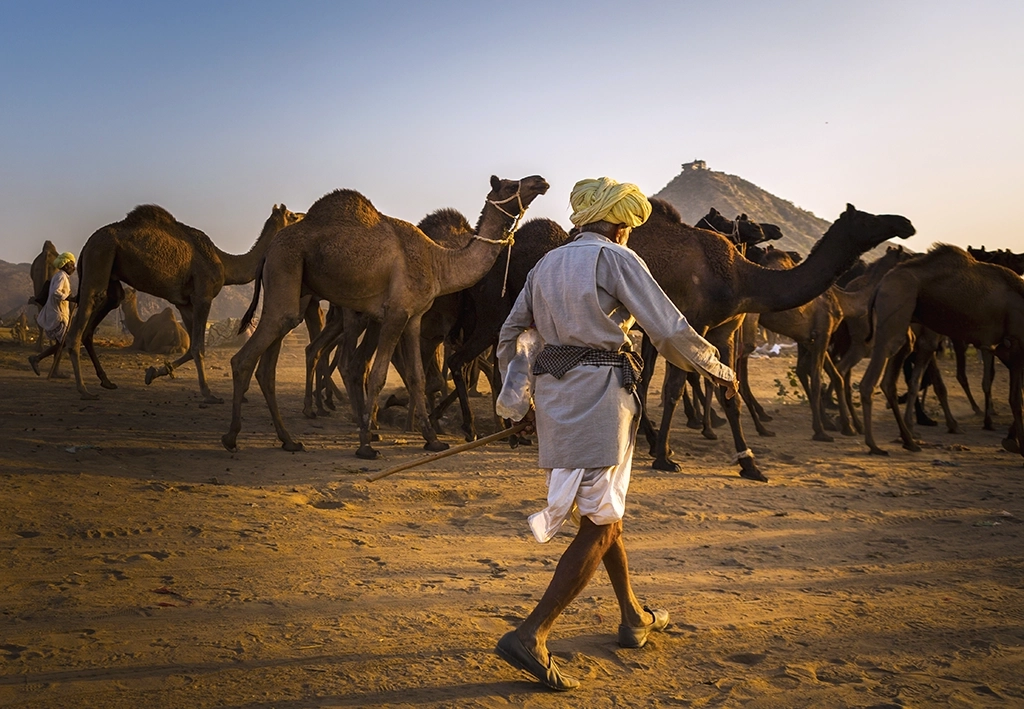
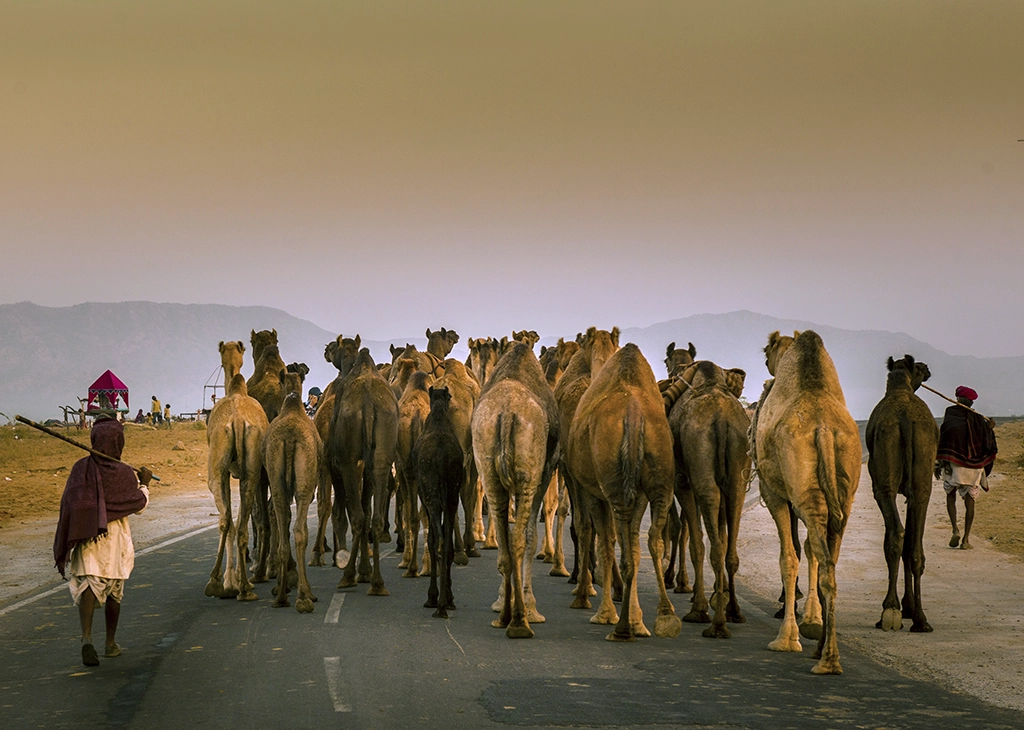
The Social, Cultural, and Economic Impact of the Pushkar Camel Fair
Beyond its cultural significance, the Pushkar Camel Fair has a profound socio-economic impact on the region. It’s not just a festive gathering; it’s a lifeline for many communities. The fair injects an economic boost, providing opportunities for local businesses, artisans, and craftsmen. The bustling bazaars, which come alive during the fair, serve as platforms for traders and vendors to showcase their wares to a global audience.
The fair also fuels the local economy by boosting tourism. Travel enthusiasts from around the world flock to Pushkar during this time, contributing to the revenue of the region. The rise in tourism translates into increased job opportunities, benefiting the local population.
Additionally, the fair promotes cultural exchange, as visitors from various corners of the world immerse themselves in the local way of life. It fosters understanding, appreciation, and tolerance, making the fair not just a cultural spectacle but also a bridge between communities and cultures.
As we journey deeper into the fair, we’ll uncover the harmonious coexistence of ancient traditions and modern elements. The fair seamlessly blends history with the 21st century, evident in the camel trading tradition that remains rooted in time alongside contemporary offerings like photography tours and hot air balloon rides.
In the end, it’s about creating memories that last a lifetime. Treasures from the bazaars, culinary delights that tantalize the taste buds, and the warm hospitality of the locals are all part of the journey. The Pushkar Camel Fair is more than an event; it’s an odyssey that immerses you in the rich tapestry of Rajasthan. It’s where the past and present dance together, where memories are crafted, experiences are treasured, and connections are forged.
Join me on this visual odyssey through Rajasthan’s culture and discover why the Pushkar Camel Fair is indeed a journey worth taking.
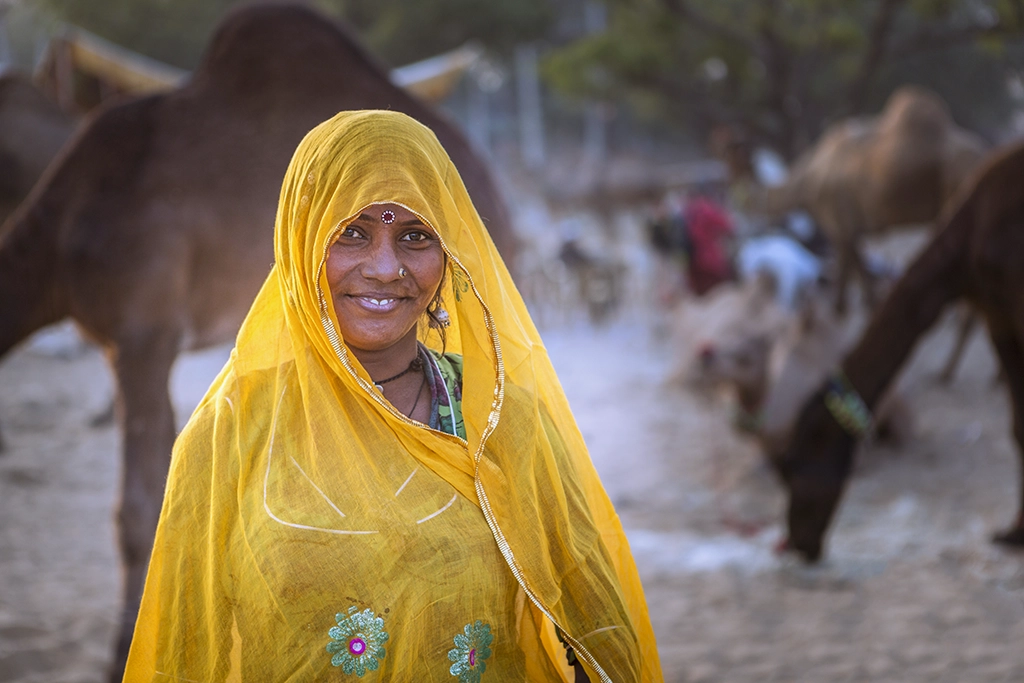
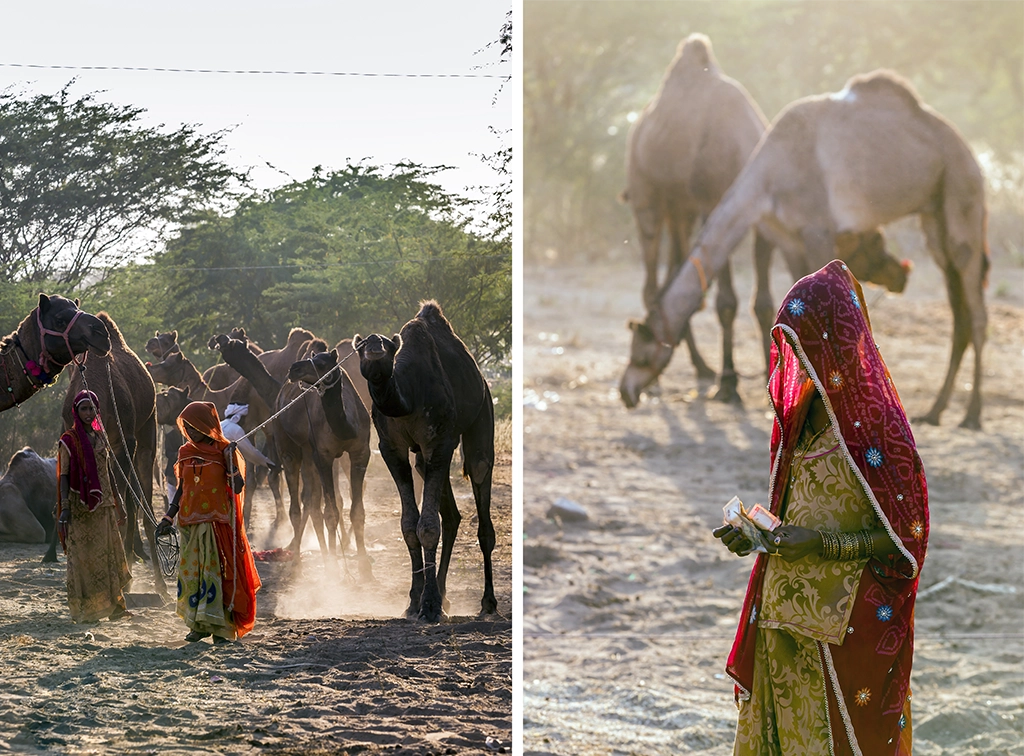
Unveiling the Cultural Spectacle
The Multicolored Turbans and Traditional Attire
One of the first things that captivates your senses as you enter the Pushkar Camel Fair is the riot of colors. Men adorned in vibrant turbans and women draped in traditional attire create a visual feast that’s unlike anything you’ve ever seen. The turbans, known as “pagdis” in Hindi, are not just a piece of clothing but a symbol of prestige and honor in Rajasthan. Each color and style conveys a unique message about the wearer, reflecting their age, social status, and even the region they come from. It’s a fascinating journey into a world where attire is more than just clothing; it’s a testament to Rajasthan’s rich heritage.
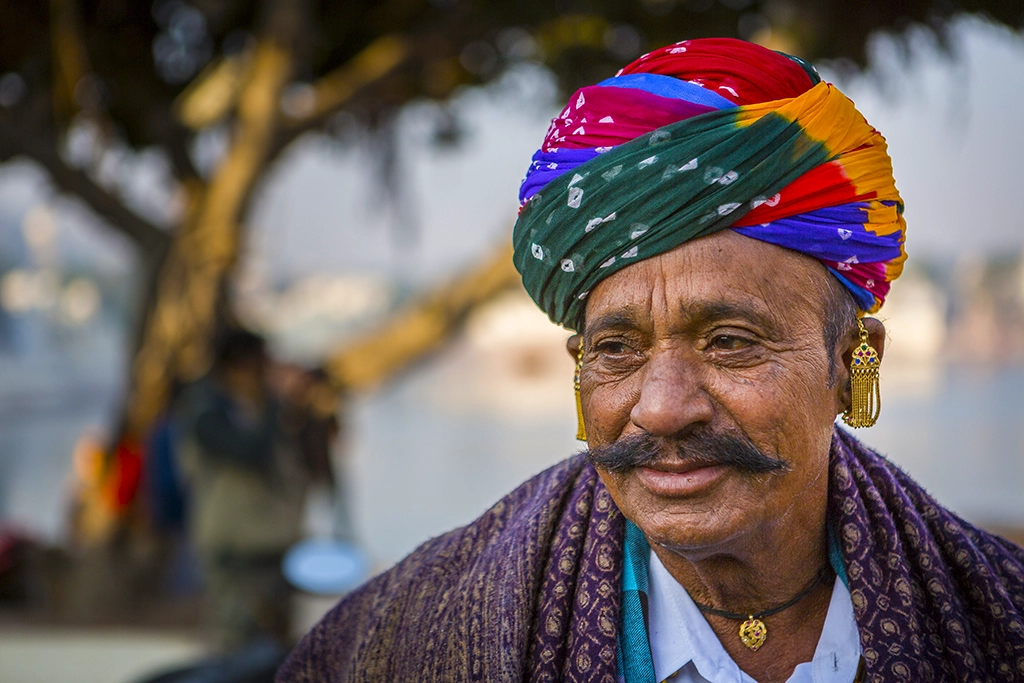
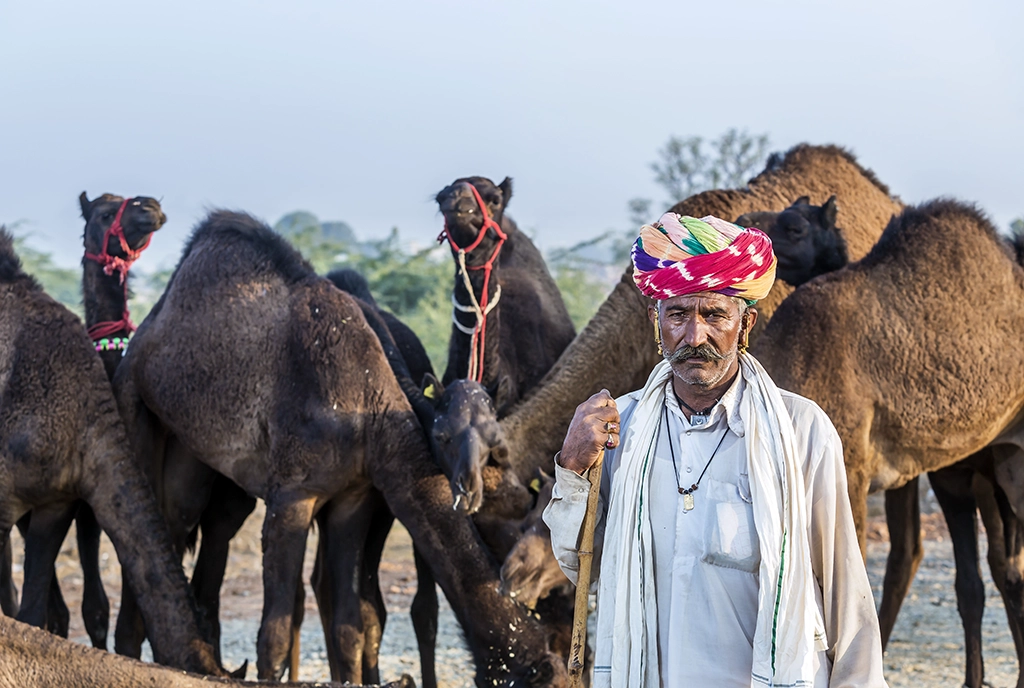
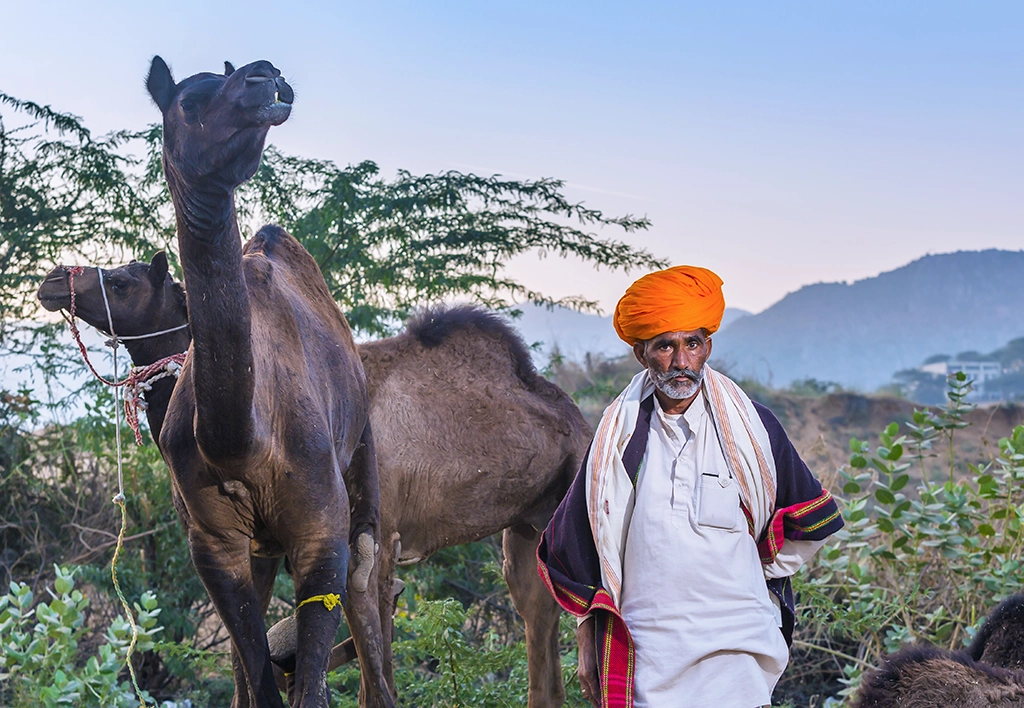
Folk Performances: A Cultural Delight
As you explore the fair, you’ll find yourself surrounded by the enchanting tunes of folk music and the rhythmic beats of traditional dance forms. Rajasthani folk performances are an integral part of the fair, and they transport you to an era where storytelling through music and dance was a way of life. The melodious tunes of the “dholak” and “manjeera” (traditional instruments) resonate through the air, and skilled performers enthrall the audience with their graceful moves. These performances are not mere spectacles; they are an authentic glimpse into Rajasthan’s cultural soul.

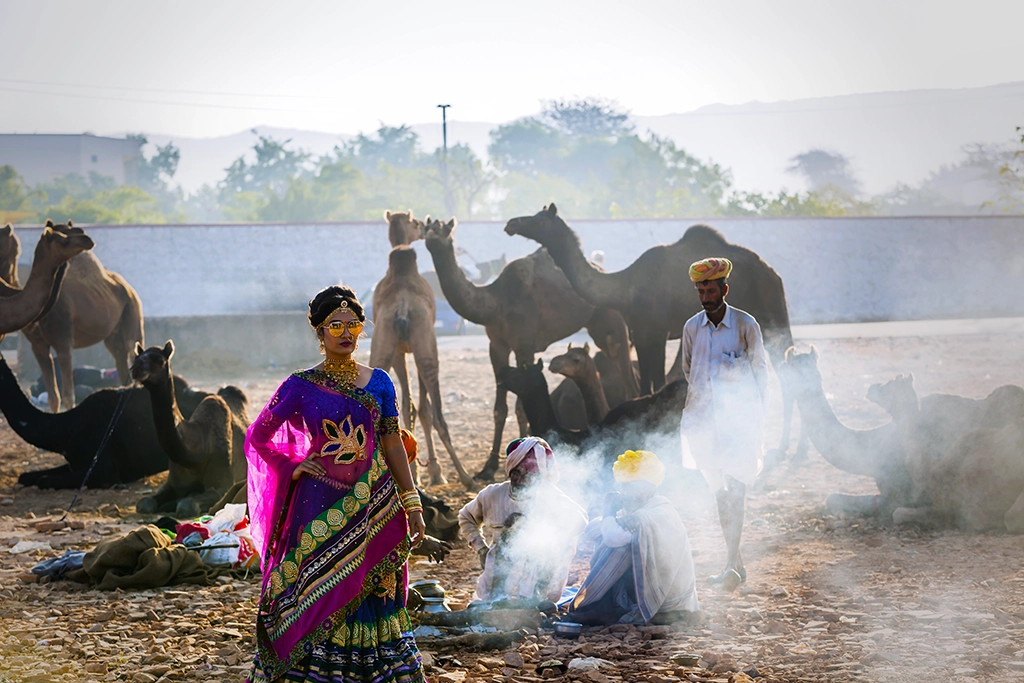

An Authentic Glimpse into Rajasthan’s Heritage
The Pushkar Camel Fair is not a mere reenactment of Rajasthan’s culture; it’s a living, breathing testament to the region’s heritage. What sets it apart from many other cultural events is its authenticity. Unlike staged performances, the fair exudes a genuine charm that’s impossible to replicate. The people you meet, the stories you hear, and the traditions you witness are not curated for tourists but are part of the everyday life of the locals. It’s a place where you can engage with Rajasthani communities, learn about their traditions, and immerse yourself in their way of life. The fair is a vibrant tapestry of living heritage.

The Experiences You Can’t-Miss
Camel Rides: A Majestic Desert Journey
The fair is synonymous with camels, and taking a camel ride is a quintessential experience. Picture yourself atop one of these majestic creatures, with the vast Thar Desert stretching before you. As the camel plods along the golden sands, you’ll feel a connection with the nomadic life of Rajasthan’s desert people. The desert landscape, with its undulating dunes and endless horizons, is a sight to behold. Whether you opt for a short ride or an extended desert safari, the experience is unparalleled. It’s a chance to witness the desert’s ever-changing moods, from the soft pastel hues of sunrise to the fiery oranges of sunset.
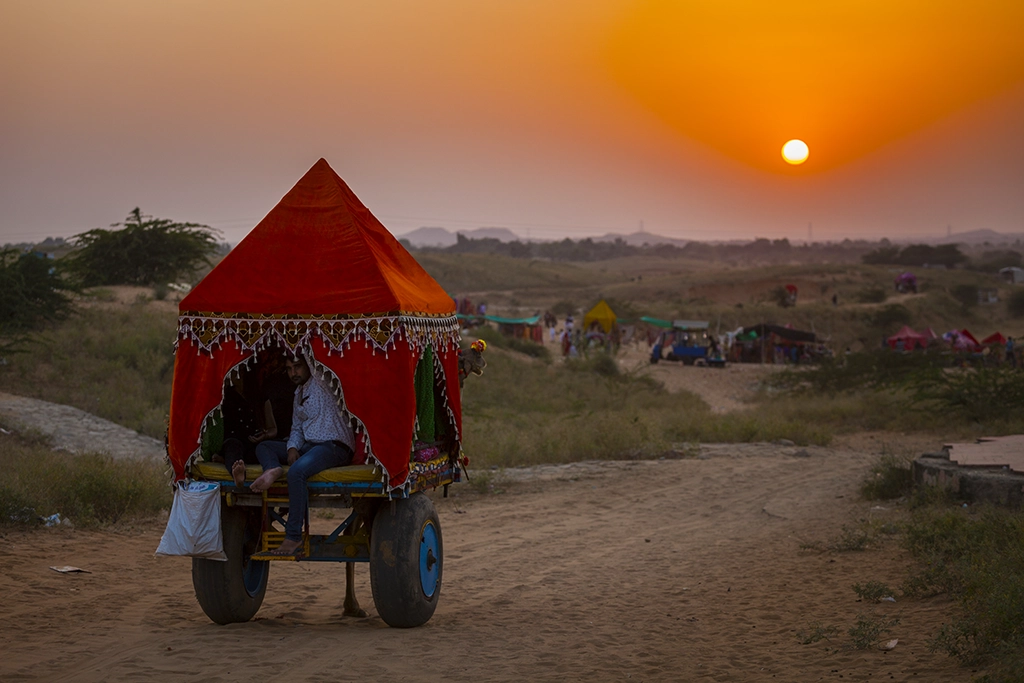
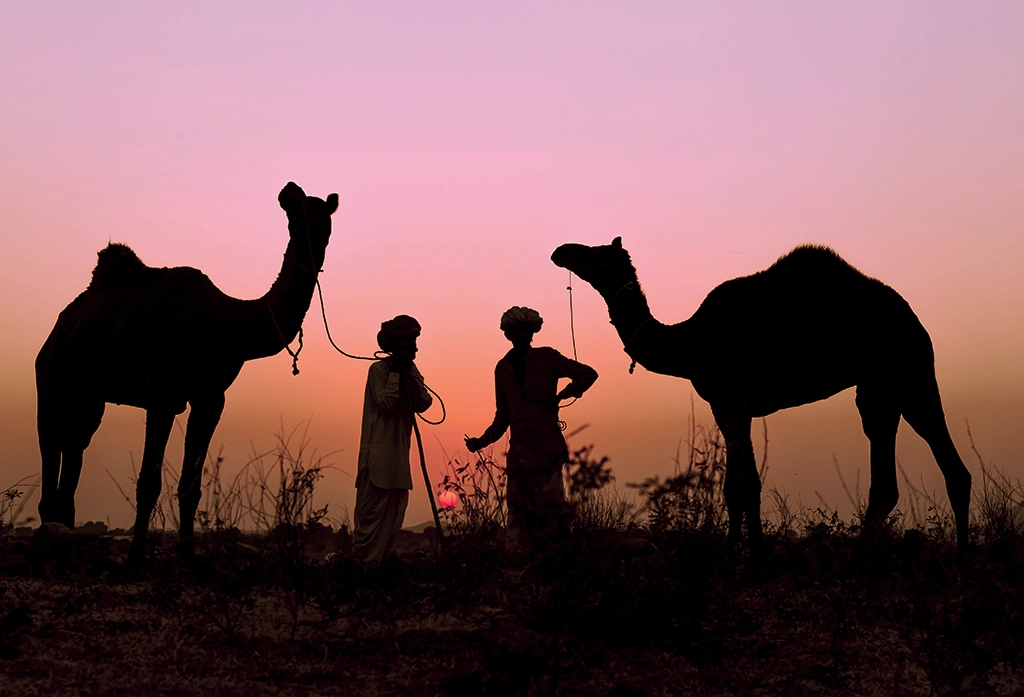
Pushkar Lake: Sacred Serenity
While the fair is a lively extravaganza, a visit to Pushkar remains incomplete without a moment of serenity by the sacred Pushkar Lake. According to Hindu mythology, a dip in the holy waters of Pushkar Lake is believed to cleanse one of their sins. The ghats (steps) surrounding the lake buzz with spiritual activity as devotees come to offer prayers and take a dip in the tranquil waters. The atmosphere is imbued with spirituality, and the melodious sound of temple bells fills the air. For a visitor, this is a unique opportunity to witness the spiritual aspect of Rajasthan’s culture. The lakeside offers a peaceful respite from the fair’s excitement.

Local Flavors and Bustling Bazaars
The fair is not just about visual and cultural experiences; it’s a culinary delight as well. Rajasthan’s cuisine is an explosion of flavors, and the fair provides the perfect setting to savor its culinary treasures. From the aroma of “dal baati churma,” a traditional Rajasthani dish, to the sizzle of “mirchi vada,” a spicy chili fritter, your taste buds are in for a treat. The fair’s food stalls offer a wide array of local dishes, each with its own distinct flavor and story. It’s a chance to savor the rich, flavorful cuisine of Rajasthan and experience the joy of indulging in traditional recipes passed down through generations.
The bustling bazaars that come to life during the fair are a shopper’s paradise. You’ll find an array of handicrafts, textiles, jewelry, and curiosities that showcase Rajasthan’s artistic excellence. The vibrant bazaars offer a glimpse into the state’s artistry, and haggling for your favorite pieces is all part of the experience. The fair’s bazaars are treasure troves where you can find unique souvenirs and mementos that reflect the region’s cultural richness. From colorful textiles to intricately designed jewelry, the fair’s bazaars offer a visual and tactile feast for shoppers.
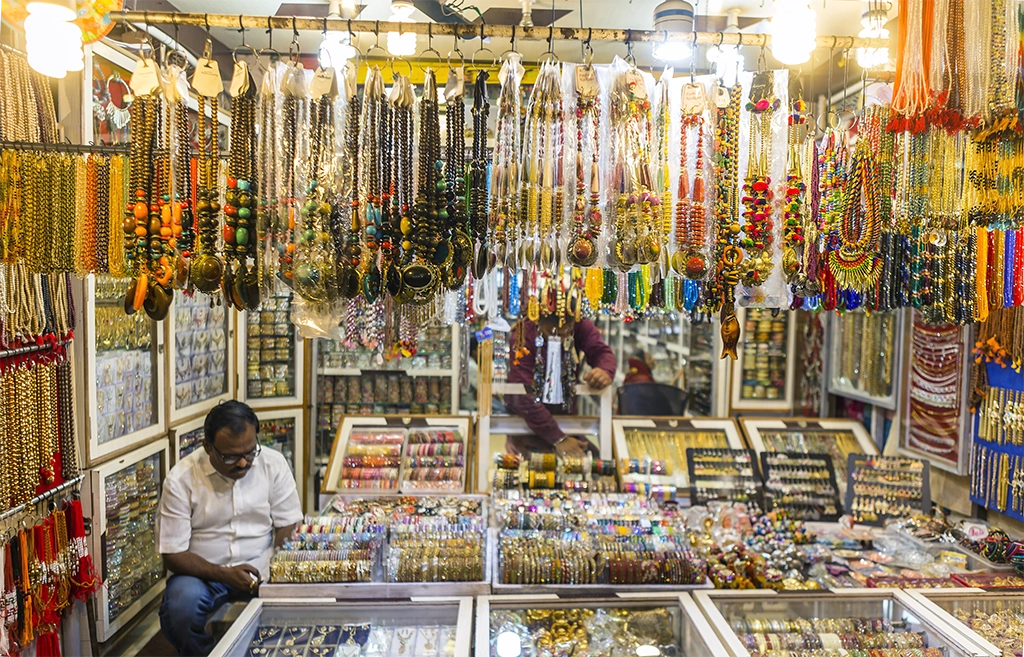

A Journey Through Time
Camel Trading Tradition: Rooted in History
The history of the Pushkar Camel Fair is closely intertwined with the tradition of camel trading. This event has served as a hub for traders and herders from all corners of Rajasthan and neighboring states. The fair’s origin as a livestock trading event dates back centuries, making it one of the oldest and largest camel fairs in the world. Camel trading is not just a business; it’s a way of life for many communities in this region. The fair continues to be a platform where camels, often referred to as the “ships of the desert,” change hands, preserving a tradition that’s been carried forward for generations. It’s a fascinating glimpse into the history and livelihoods.

Embracing the 21st Century: Photography Tours and Hot Air Balloon Rides
While the fair pays homage to its rich history, it also embraces the 21st century with open arms. In recent years, the fair has introduced modern elements that add a new dimension to the experience. Photography tours are a notable addition, allowing enthusiasts to capture the fair’s surreal beauty through their lenses. The fair’s vibrant colors, lively cultural performances, and sheer scale of the event offer a visual feast for photographers. Whether you’re a seasoned professional or a budding enthusiast, the fair provides a wealth of opportunities to capture the essence of Rajasthan’s culture.
Another modern addition that has taken the fair to new heights is the hot-air balloon rides. Imagine ascending above the fairgrounds and witnessing the grandeur of the event from the sky. The view is breathtaking, with thousands of camels, vibrant tents, and bustling bazaars spreading out beneath you. The hot air balloon rides offer a unique perspective, allowing you to see the fair in all its grandeur and understand the sheer magnitude of this cultural extravaganza.
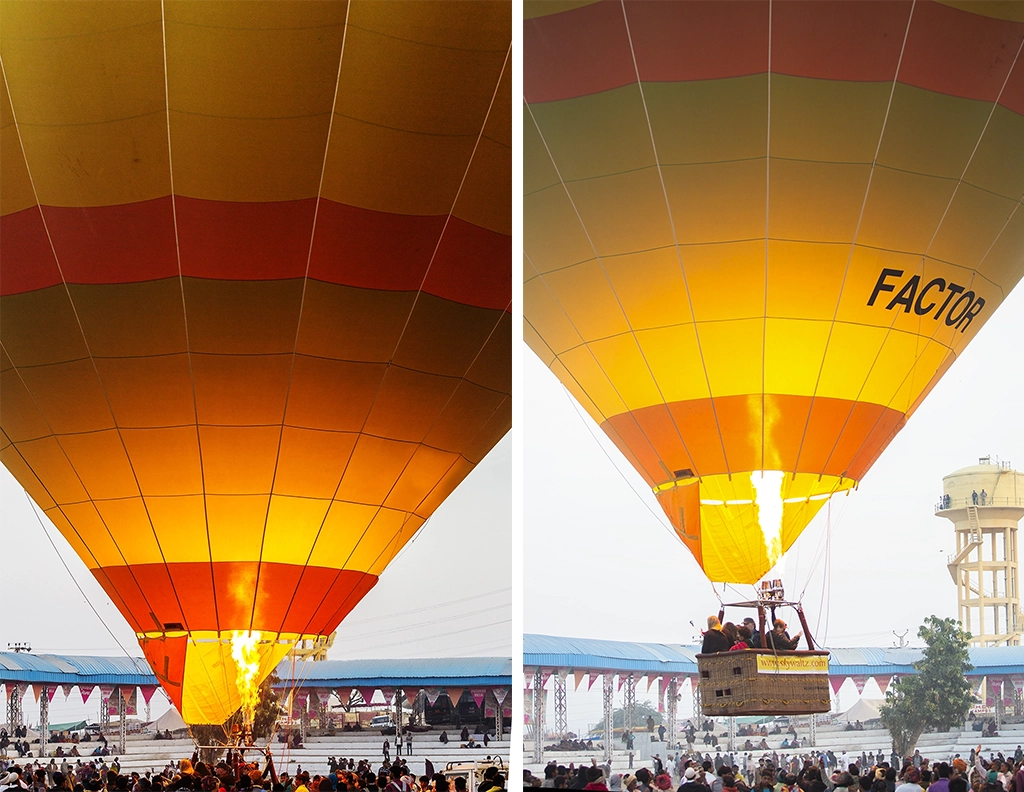
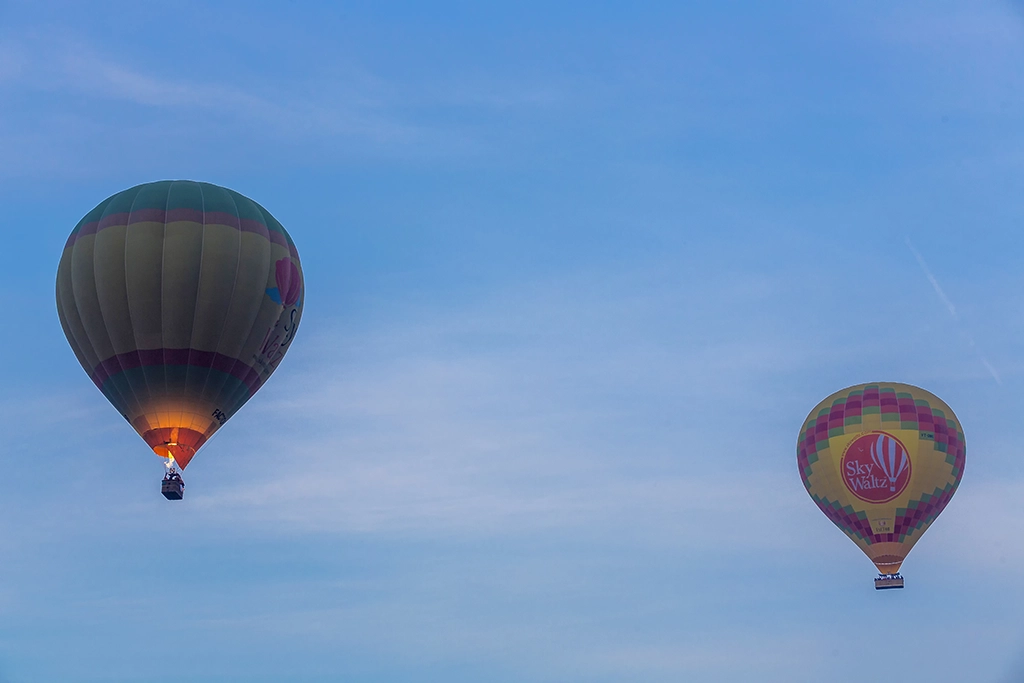
Blending the Past and Present
What makes the Pushkar Camel Fair truly extraordinary is its ability to seamlessly blend the past with the present. It’s a place where history is not preserved in isolation but is an integral part of the contemporary experience. The fair stands as a living example of how traditions can coexist with the modern world, each enriching the other.
As you explore the fair, you’ll witness camel traders engaged in age-old barter practices, and at the same time, you’ll find modern travelers sharing their experiences on social media platforms. The fair harmoniously combines the nostalgia of the past with the enthusiasm of the present, offering a unique experience that challenges conventional thinking.

Creating Memories
Treasures from the Bazaars
The bustling bazaars of the Pushkar Camel Fair are a treasure trove of Rajasthan’s art and craft. As you meander through the narrow alleys, you’ll encounter stalls laden with an assortment of goods. The bazaars are filled with textiles in vivid hues, each telling a story through its intricate patterns and designs. Traditional jewelry, from ornate silver pieces to colorful glass bangles, sparkles in the stalls. Handicrafts, including embroidered fabrics, leather items, and pottery, showcase the craftsmanship of Rajasthan’s artisans. These bazaars offer a piece of Rajasthan’s artistic heritage, and every item you purchase here carries with it the history and culture of the region.

Culinary Delights: A Flavorful Experience
Rajasthani cuisine is an exploration of flavors, and the fair provides the perfect platform to savor its culinary treasures. The aroma of freshly prepared dishes wafts through the air, drawing you to the food stalls. Here, you can sample a wide variety of Rajasthani delicacies, each with its own distinct taste. “Dal baati churma,” the quintessential Rajasthani dish, is a must-try, with its combination of lentil curry, savory wheat balls, and sweet crumbled bread. If you crave something spicier, “mirchi vada,” a spicy chili fritter, is sure to tantalize your taste buds. The fair’s food stalls are a culinary journey through Rajasthan’s rich and flavorful cuisine.

The Heartwarming Hospitality of Locals
One of the most heartwarming aspects of the Pushkar Camel Fair is the hospitality of the locals. As you navigate the fairgrounds, you’ll encounter people who welcome you with open arms. They take pride in sharing their culture and traditions and are eager to introduce you to the magic of Rajasthan. It’s not uncommon to be invited for a cup of chai (tea) or to engage in conversations that transcend language barriers. The locals make you feel like a part of their extended family, and their warmth and kindness are a testament to the inclusive nature of the fair. The Pushkar Camel Fair is not just about witnessing a culture; it’s about becoming a part of it.
In the end, the fair is not merely an event; it’s an odyssey through Rajasthan’s culture, where every moment is a celebration of history, traditions, flavors, and connections. The experiences it offers challenge conventional thinking and encourage you to embrace a new perspective on Rajasthan’s rich and diverse heritage.
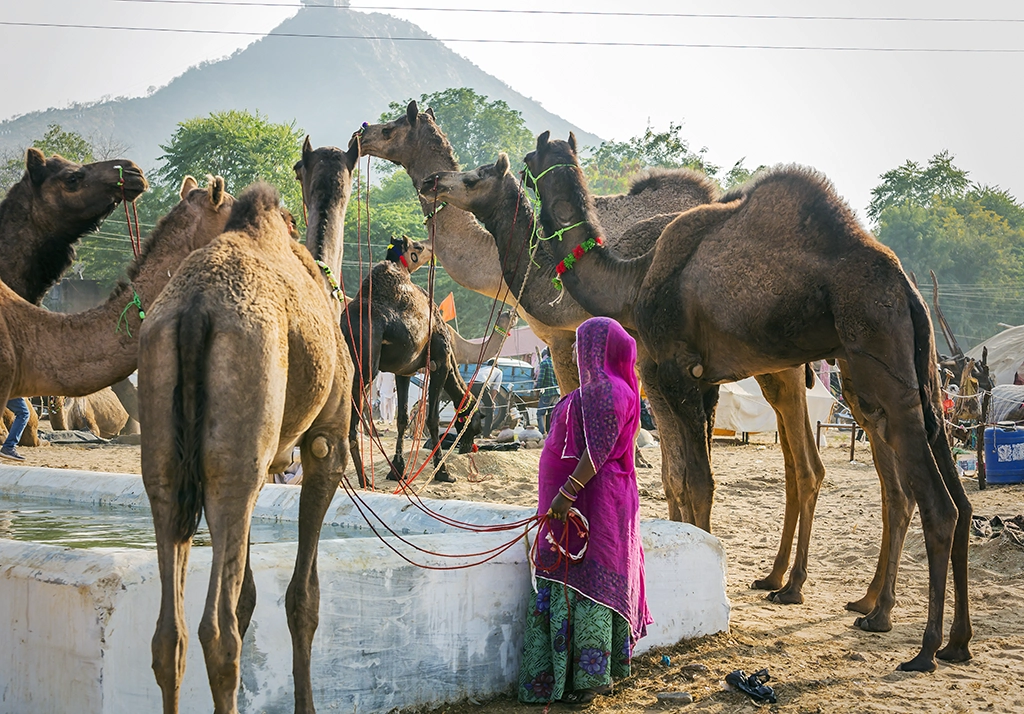
Conclusion: A Journey Worth Taking
In conclusion, the Pushkar Camel Fair is much more than an annual event—it’s an odyssey that immerses you in the rich tapestry of Rajasthan’s culture. This vibrant extravaganza offers an authentic glimpse into the traditions and heritage of the region, challenging conventional thinking and encouraging you to embrace a new perspective.
As we journeyed through the fair, we unveiled its cultural spectacle, from the multicolored turbans and traditional attire that reflect the essence of Rajasthan to the folk performances that transport you to an era of storytelling through music and dance. It’s an opportunity to witness the living heritage of Rajasthan, where the past harmoniously coexists with the present.
The fair provides experiences you can’t afford to miss—majestic camel rides that offer a glimpse of the desert’s ever-changing moods, serene moments by the sacred Pushkar Lake, and the rich, flavorful cuisine that tantalizes the taste buds. The bustling bazaars showcase the artistry and craftsmanship of Rajasthan’s artisans, offering a piece of the region’s cultural richness.
While steeped in history, the fair embraces the 21st century with open arms. Photography tours allow you to capture the fair’s surreal beauty, and hot-air balloon rides provide a bird’s-eye view of the grandeur of the event. The fair is a living example of how traditions and modernity can enrich one another.
But what truly sets the Pushkar Camel Fair apart is the way it allows you to create lasting memories. Treasures from the bazaars, culinary delights, and the heartwarming hospitality of the locals all become cherished moments in your journey.
This fair is more than just an event; it’s a cultural wonder that challenges conventional thinking and encourages you to embrace a new perspective. It’s an odyssey into Rajasthan’s rich tapestry, where memories are crafted and connections are forged. The Pushkar Camel Fair is your ticket to a journey worth taking, an exploration of the soul of Rajasthan that leaves an indelible mark on your heart.
In its entirety, this article encapsulates the essence of the Pushkar Camel Fair, inviting you to join this cultural odyssey, explore the vibrancy of Rajasthan’s traditions, and challenge your thinking to see the world in a new light.
FAQs to provide additional information for readers:
1. When is the best time to visit the Pushkar Camel Fair?
The Pushkar Camel Fair typically takes place in November. This is considered the best time to experience the fair’s authenticity and cultural vibrancy.
2. Is the Pushkar Camel Fair suitable for families with children?
Yes, the fair is family-friendly and offers a wide range of activities for all ages, making it a great destination for families to explore together.
3. Are there any specific local customs or etiquettes to be aware of when visiting the fair?
Yes, it’s advisable to dress modestly and respect local customs. Additionally, it’s courteous to ask for permission before taking photographs of individuals, particularly in more remote or traditional areas of the fair.
4. How can I reach the Pushkar Camel Fair from Jaipur, Rajasthan’s capital city?
Jaipur is the nearest major city to Pushkar. You can reach Pushkar from Jaipur by road in approximately 2.5 to 3 hours. You can choose to drive or hire a taxi for a convenient journey.
5. What kind of souvenirs can I expect to find in the fair’s bustling bazaars?
The fair’s bazaars offer a wide variety of souvenirs, including traditional textiles, vibrant fabrics, exquisite jewelry, handcrafted pottery, and much more. These items reflect the rich cultural heritage of Rajasthan and make for unique mementos of your visit.
6. What are the dates for this year’s Pushkar Camel Fair?
The dates of the Pushkar Camel Fair can vary from year to year since it is based on the lunar calendar. This year dates of the fair are Mon, 20 Nov 2023 – Tue, 28 Nov 2023

